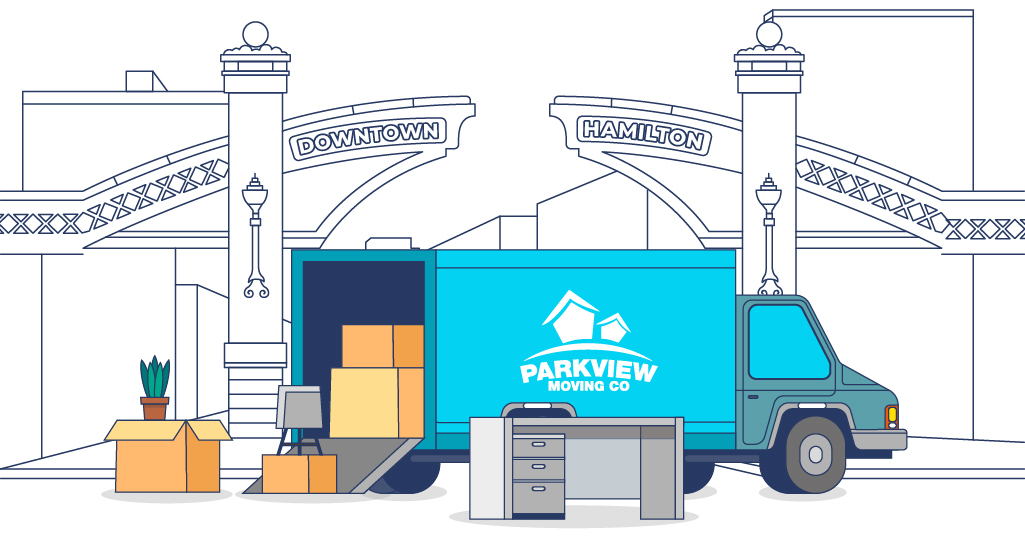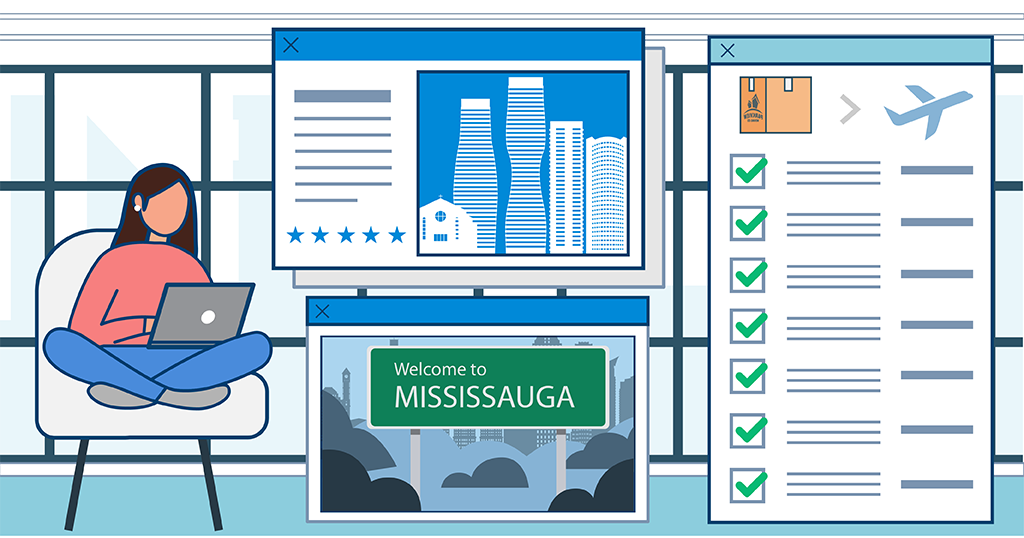
You can claim some genuinely wacky things on your Canadian tax return. In certain situations, people can claim things such as vitamin B12, medical cannabis, and even digital news subscriptions even digital news subscriptions. What moving expenses are tax deductible? Let’s find out!
One of the biggest costs you no doubt wish you could write off, though, is moving in Canada. Moving homes can easily set you back financially if you aren’t careful with the budget. So, what moving expenses are tax deductible in Canada, if any?
The Canadian government does offer quite a few handy moving write-offs that you can avail of. Join us as we take a look at the options available to you.

Requirements to Claim Tax Deductions
Not just anyone can write off their moving expenses on taxes. You need to meet the following criteria when you move to a new location:
- Be working or running a business
- Be studying full-time as a post-secondary student
- Be living within 40 kilometres of the new work location
As you can see, you can’t claim the moving deduction if you simply want to upgrade or downgrade a house in the same city. You need to be doing so for employment purposes, whether it’s a new job or your own self-employment gig. This can include a new job or a transfer to another company location.
Students can also claim the moving deduction. Unless they have taxable education aid money, they’ll need to have a job at the new location.
To be clear, this deduction applies to the majority of moving expenses. You don’t need to be a homeowner to avail of them. It also includes students moving away from home for a summer job, as long as it meets the distance requirement.
Finally, these deductions can only happen from your new income at the location. You cannot deduct it from employment insurance benefits or investment revenues. For that reason, take care to research the cost of living in your destination city, such as Ottawa.
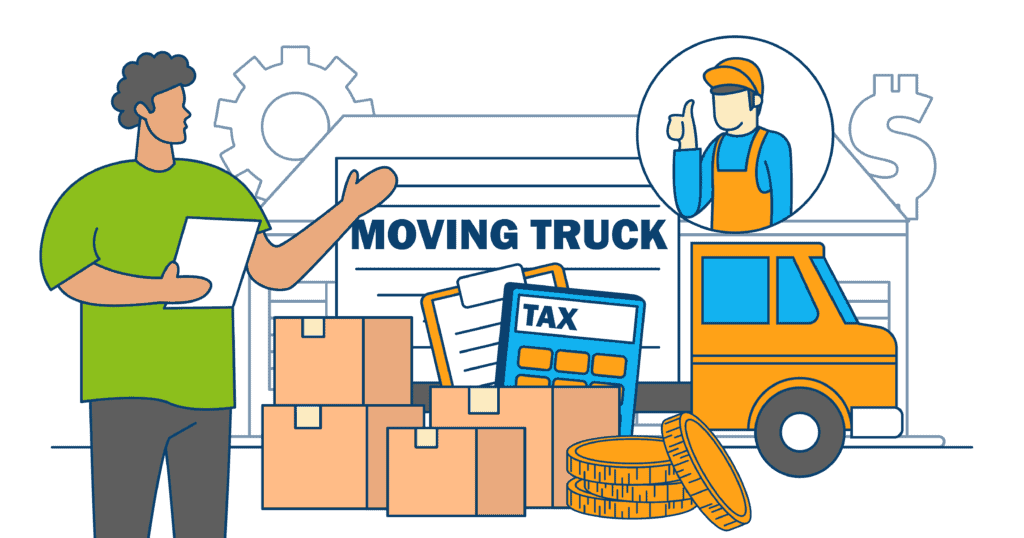
What Moving Expenses Are Tax Deductible?
So, you have determined that you meet the requirements that we outlined above. What specific expenses can you include in your tax return for next year? Use the Canadian government website as a helpful guide.
Storage and Transportation Costs
Almost anything you can think of related to transportation and storage is deductible. That includes things like packing, storage along the way, insurance, and so on. This also includes paying for movers to help you.
The coverage extends to all household items, including trailers and boats.
General Travel Expenses
Travel expenses include just about anything you can imagine. The cost of gas, meals along the way, and accommodations at hotels in transit. To make things easier, the government allows you to claim these deductions either in a simplified or detailed form.
The detailed method means you must provide all receipts to claim the specific amount your trip incurred. This will allow you to get the exact amount back.
Otherwise, you can use a flat rate for each person. For example, your limit is $17 per meal (per person) and up to $51 per day for each person. If the simplified rate is more than the detailed rate, then take that instead.
Simplified travel costs are per kilometre, between 45 and 60.5 cents. Check the area you’re moving from to find the correct amount.
Temporary Living Expenses
“Temporary living” refers to staying somewhere for a maximum of 15 days. It includes the lodging and meals for that period incurred by you and your family members. Same as the above, you can use the detailed or simplified means of calculating expenses.
Lease Cancellation
Did you lose money by cancelling your lease? For example, having to pay the final months of rent in agreement with your contract. You may be able to claim this on your tax return, whether for an apartment or an old home.
Incidental and Move-Related Costs
There are lots of small fees and costs associated with changes to your government documents. They may include the following:
- Changing your legal address
- Replacing vehicle permits and driving licenses
- Paying for utility disconnections/hookups
Note: This does not include vehicular insurance.
Maintaining a Vacant Home
You may still be in the process of selling the home you just left. In that case, you can write off the costs associated with maintaining it until you sell it. This includes expenses such as the following:
- Property taxes
- Interest
- Premiums on insurance
- Utility expenses
There is a maximum of $5,000 for these maintenance costs. Be extra careful not to claim any costs that your family incurred while living there. This deduction only applies if the home is not occupied.
Selling an Old Home
That’s right, you can write off some of the costs related to selling your old home. Things such as the following:
- Listing or advertising your home
- Paying legal or notary fees
- Paying real estate commission
- Mortgage penalties for early payment
You cannot claim any costs for your home if you are renting it.
Buying a New Home
Costs associated with purchasing a new home also qualify for deduction. You will need to have sold your previous home and moved to a new location in accordance with the requirements above. The deduction only applies if you sold the home specifically for the move to a new job.
The person you purchased the home with must be your common-law partner or spouse.

What Moving Expenses Are Not Tax Deductible?
Of course, you can’t write everything off. Here are things that the CRA will not allow you to claim:
- Renovations to sell your old home
- Losses on your home’s sale
- House-hunting travel expenses prior to the move
- Job-hunting travel expenses in another location
- Value of items movers did not take
- Repair or cleaning expenses for a rented home
- Replacement of personal-use items
- Cost of mail-forwarding
- Adapters and transformers for household appliances
- Costs for delaying the sale of your home
- Insurance for mortgage default
Note, it’s a general rule that you cannot deduct any costs related to moving with a mobile home. The only exception is when you have to move personal items. You may deduct these costs, assuming they’re no more than if you were to move them separately.
Situations That Disqualify Eligible Expenses
There are other situations where normally-deductible expenses are no longer eligible.
Take, for example, the 40-kilometre distance limit. You need to make sure that the shortest route from your new work to your new home is actually 40 km. If you make the calculation by using a longer route, then you cannot claim the expenses.
Additionally, if your employer covers any of the moving expenses, then you cannot claim those. That includes expenses not added to your income later.
Last but not least, eligible expenses may not qualify if you lack supporting documentation. Even if you choose the simplified method, make sure to keep clear, detailed records of your expenses. Save every single receipt; you never know when you might need them!

Who Can Pay for the Expenses?
You are not the only one who needs to cover eligible expenses. As long as you paid for it, or someone in your family paid for it, it counts. The only stipulation is that these costs must come out of the income you earned at the new location.
Limit on Expenses
The only limit to your expenses (besides having reasonable amounts) is your new income. You cannot claim more than you earn at your new job or location. So, carefully budget your long-distance moving costs.
If you are a student, then that limit is on your taxable income in relation to education aid. Things like scholarships, fellowships, and research grants. Otherwise, you would need to find employment in the new location to claim these expenses.
You may have a situation where your moving expenses are larger than the income you earned for the taxable year. This tends to happen if you move later in the year. In that case, you would need to claim the rest of the moving expenses for the following year.
Reasonable Expenses
Expenses must be in “reasonable” amounts. Reasonable is a relative word, but the general idea is that you are not making claims for over-the-top expenditures. Hiring moving services is a clear example of something that’s reasonable.
For example, suppose that you claim accommodation during your move. Accommodation at a regular, affordable hotel with average meals would count. An unreasonable cost would be to stay at a five-star hotel with costly gourmet meals.
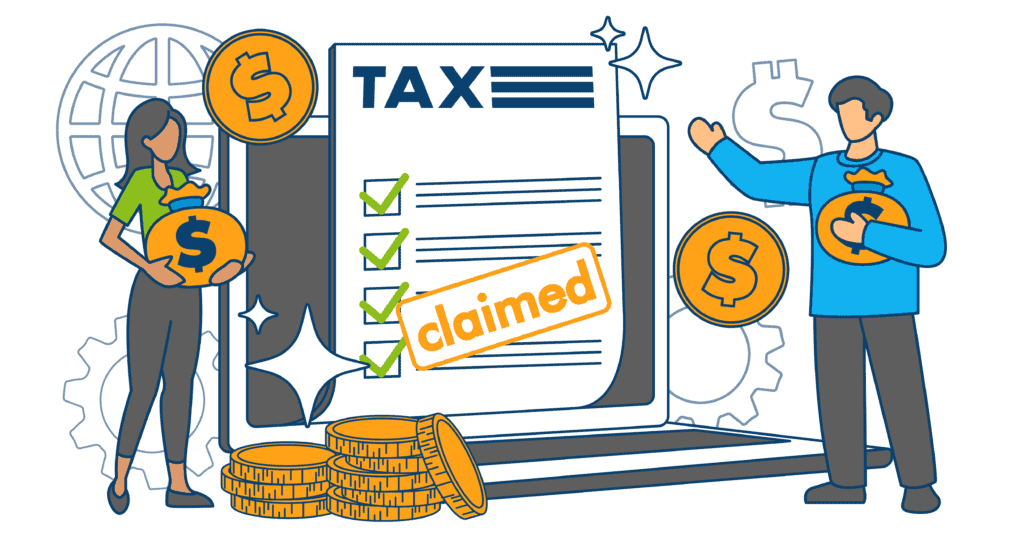
How to Claim These Tax Deductions
Once the move is over and it’s time to file taxes, you can do so with the T1-M Moving Expenses Deduction Form. Download the form as a PDF and print it or fill it out digitally.
For those with visual impairments, there are versions with digital audio, Braille, and large text. Make sure to file by the April 30th tax deadline for a move during the previous year.
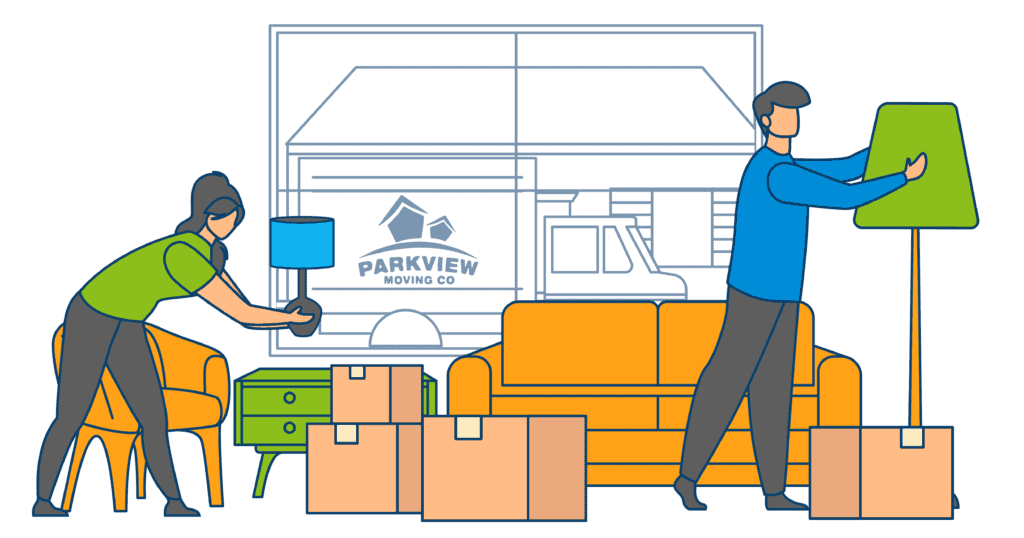
Complete Your Move With Parkview Moving Co.
What moving expenses are tax deductible in Canada? Almost all reasonable, necessary expenses can be written off. Just make sure you meet the requirements for the deductions and that you don’t spend any unreasonable amounts.
Ready to make your move? Parkview Moving Company is here to help. Get started with a quote and prepare yourself for moving in Canada.



